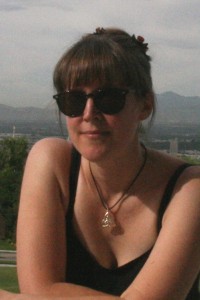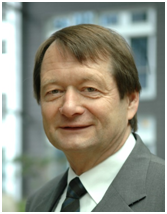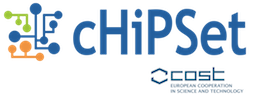HPC-enabled Modelling for Socio-Economical and Physical Sciences
Chair: Dr. Elisabeth Larsson, Sweden
Vice-Chairs: Prof. Otthein Herzog, Germany and Prof. Esko Turunen, Finland
Many types of decisions in society are supported by modelling and simulation. Some examples are political decisions based on predictive simulations of future climate changes, evacuation planning based on faster-than-real-time simulation of tsunamis, and financial market decisions based on mathematical models emulating current market conditions. In all of these situations, large amounts of data such as global geographical information, measurements of the current physical or financRial state, and historical data are used both in the model building and model calibration processes. However, also in the predictive phase, there are many applications that not only benefit from, but require HPC due to the complexity of the models, the computational volume, and the amount of data that is being generated in the simulations. Some particularly challenging problem features are high-dimensionality (e.g. in finance or quantum physics) where the computational costs grow exponentially with the dimension, multi-scale physics (e.g. in climate and tsunami simulations) where scales that differ in orders of magnitude need to be resolved to capture the relevant physical processes, and computations under uncertainty, where the COST 103/14 25 EN impact of uncertain measurements, parameters and models is quantified through multiple evaluations or extended models leading to an increased computational cost (e.g. in safety critical decision problems). Especially in physics, HPC has been successfully employed for a long time. However, existing codes and algorithms are not optimized for modern computer architectures and cannot efficiently exploit massively parallel systems. Furthermore, the increase in available computer power allows for expansion of the horizon of what one can simulate, but the complexity of the systems hampers productivity and progress. In socio-economical sciences the vast amounts of data expected from the fast growth of the internet of things will provide new challenges for the extraction of knowledge. HPC in a distributed model is going to play a major role in such activities and this Action tackles that approach.
WG4 Chairs
 Dr. Elisabeth Larsson got her PhD in Numerical Analysis from Uppsala University, Sweden in2000. The topic of the thesis was preconditioned iterative methods for wave propagation problems. After the PhD she was a postdoctoral fellow at University of Colorado, Boulder, USA. Currently she is an Associate professor at Uppsala University. Her main research topics are radial basis function approximation methods for the solution of partial differential equations and high-performance scientific computing with a special focus on programming models promoting productivity and performance. In 2007 she received the Göran Gustafsson award for young researchers for a project on global climate simulation using radial basis functions. She is one of the research leaders in the Linnaeus center of excellence UPMARC (Uppsala Programming for Multicore Architectures). Since 2010, she is the Director of the Centre for Interdisciplinary Mathematics at Uppsala University.
Dr. Elisabeth Larsson got her PhD in Numerical Analysis from Uppsala University, Sweden in2000. The topic of the thesis was preconditioned iterative methods for wave propagation problems. After the PhD she was a postdoctoral fellow at University of Colorado, Boulder, USA. Currently she is an Associate professor at Uppsala University. Her main research topics are radial basis function approximation methods for the solution of partial differential equations and high-performance scientific computing with a special focus on programming models promoting productivity and performance. In 2007 she received the Göran Gustafsson award for young researchers for a project on global climate simulation using radial basis functions. She is one of the research leaders in the Linnaeus center of excellence UPMARC (Uppsala Programming for Multicore Architectures). Since 2010, she is the Director of the Centre for Interdisciplinary Mathematics at Uppsala University.
 Prof. Otthein Herzog received his MSc (Diploma) in Mathematics from the University of Bonn, Germany in 1972, and his PhD in Computer Science from the University of Dortmund, Germany, in 1976. From 1977 to 1993, he worked for IBM Germany in various technical and managerial positions in software development where he was responsible for the development of software products and for the development of advanced knowledge-based systems while he directed the IBM Institute for Knowledge-based Systems in the IBM Scientific Center. From 1993-2009 he held the position of the chaired professor of Artificial Intelligence at the University of Bremen, Germany, where he was the founder and director of the research and technology transfer institute TZI – Center for Information and Communication Technologies from 1995 to 2009 with more than 160 fulltime researchers. He was the Co-PI and director (together with Prof.. Scholz-Reiter) of the DFG-funded Collaborative Research Center (SFB) 637 on “Autonomous Cooperating Logistic Processes” from 2004-2014, and among many others, he directed the EU Integrated Project “Wearable Computing” from 2004-2009 with 42 partners. He continues to work as a research professor at the University of Bremen. Since 2010 he also holds the Wisdom Professorship of Visual Information Technologies at Jacobs University Bremen. In 1998, he became affiliate professor in the Machine Learning and Inference Laboratory of George Mason University, Fairfax, VA, USA, and since 2015, he holds a honorary professorship at CIUC, Tongji University, Shanghai, as National Senior International Expert. His current research interests include Knowledge Management and coordination through Multi-Agent Systems for Industry 4.0 and Logistics 4.0, ICT for Smart Cities, Wearable Computing for work processes and health as well as AAL applications, and the semantic analysis of images and videos. In these research fields he has (co-)authored more than 260 refereed scientific publications. Since 2006, Dr. Herzog is Fellow of acatech – German National Academy of Science and Engineering, Fellow of GI – German National Computer Society since 2008, and member of the ACM and DAGM. He also serves on various boards of German research institutions.
Prof. Otthein Herzog received his MSc (Diploma) in Mathematics from the University of Bonn, Germany in 1972, and his PhD in Computer Science from the University of Dortmund, Germany, in 1976. From 1977 to 1993, he worked for IBM Germany in various technical and managerial positions in software development where he was responsible for the development of software products and for the development of advanced knowledge-based systems while he directed the IBM Institute for Knowledge-based Systems in the IBM Scientific Center. From 1993-2009 he held the position of the chaired professor of Artificial Intelligence at the University of Bremen, Germany, where he was the founder and director of the research and technology transfer institute TZI – Center for Information and Communication Technologies from 1995 to 2009 with more than 160 fulltime researchers. He was the Co-PI and director (together with Prof.. Scholz-Reiter) of the DFG-funded Collaborative Research Center (SFB) 637 on “Autonomous Cooperating Logistic Processes” from 2004-2014, and among many others, he directed the EU Integrated Project “Wearable Computing” from 2004-2009 with 42 partners. He continues to work as a research professor at the University of Bremen. Since 2010 he also holds the Wisdom Professorship of Visual Information Technologies at Jacobs University Bremen. In 1998, he became affiliate professor in the Machine Learning and Inference Laboratory of George Mason University, Fairfax, VA, USA, and since 2015, he holds a honorary professorship at CIUC, Tongji University, Shanghai, as National Senior International Expert. His current research interests include Knowledge Management and coordination through Multi-Agent Systems for Industry 4.0 and Logistics 4.0, ICT for Smart Cities, Wearable Computing for work processes and health as well as AAL applications, and the semantic analysis of images and videos. In these research fields he has (co-)authored more than 260 refereed scientific publications. Since 2006, Dr. Herzog is Fellow of acatech – German National Academy of Science and Engineering, Fellow of GI – German National Computer Society since 2008, and member of the ACM and DAGM. He also serves on various boards of German research institutions.
 Prof. Esko Turunen received PhD in applied mathematics in 1994 at Lappeenranta University of Technology, Finland; the title of his dissertation was `A Mathematical Study of Fuzzy Logic: an Algebraic Approach´. His research field is applied logic(s) including multi-value logics, para consistent logics, and logic-based data mining data modeling, in particular big data. Turunen has published more than 60 scientific articles and two textbooks published by Springer. Moreover, he has conducted several applied research projects related to traffic engineering, traffic simulation, medical data modeling and modeling of watercourses. Currently, Turunen is the head of the Department of Mathematics at Tampere University of Technology, Finland.
Prof. Esko Turunen received PhD in applied mathematics in 1994 at Lappeenranta University of Technology, Finland; the title of his dissertation was `A Mathematical Study of Fuzzy Logic: an Algebraic Approach´. His research field is applied logic(s) including multi-value logics, para consistent logics, and logic-based data mining data modeling, in particular big data. Turunen has published more than 60 scientific articles and two textbooks published by Springer. Moreover, he has conducted several applied research projects related to traffic engineering, traffic simulation, medical data modeling and modeling of watercourses. Currently, Turunen is the head of the Department of Mathematics at Tampere University of Technology, Finland.
